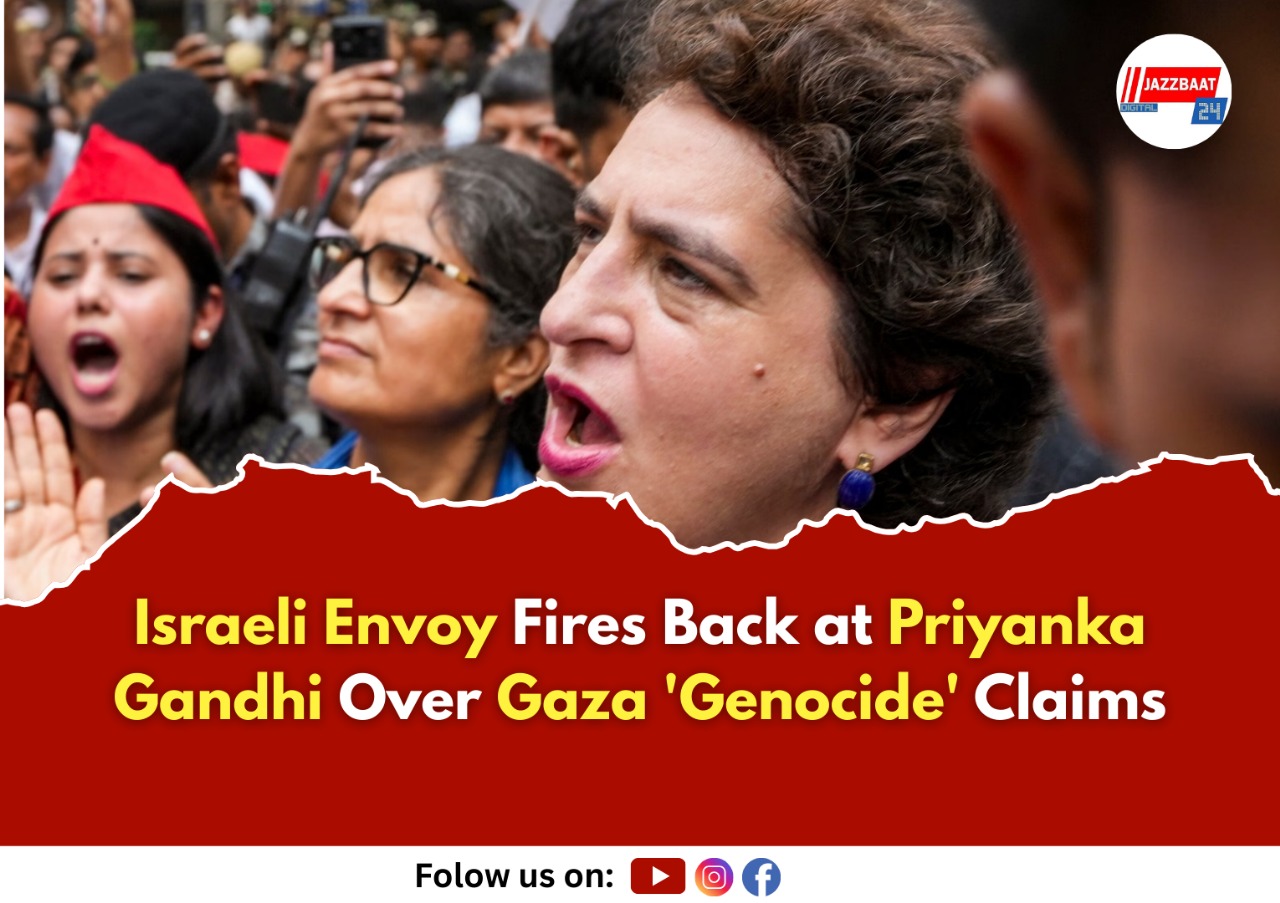
Diplomatic row erupts as Israel's ambassador to India strongly refutes Congress MP's accusations
A heated diplomatic exchange unfolded on social media Tuesday when Israel's Ambassador to India Reuven Azar sharply criticized Congress MP Priyanka Gandhi Vadra for her accusations of genocide against Israel in Gaza.
The confrontation began after Gandhi posted on X (formerly Twitter) condemning what she called Israel's "cold-blooded murder" of five Al Jazeera journalists in Gaza. She described their deaths as "yet another heinous crime committed on Palestinian soil" and accused the Israeli state of attempting to "silence truth through violence and hatred."
In her posts, Gandhi also alleged that "The Israeli state is committing genocide. It has murdered over 60,000 people, 18,430 of whom were children." She further criticized the Indian government's silence on the matter, calling it "shameful" and claiming that "enabling these crimes by silence and inaction is a crime in itself."
Ambassador Azar's response was swift and pointed. "What is shameful is your deceit," he wrote, directly challenging Gandhi's statements. The envoy defended Israel's military actions, asserting that "Israel killed 25,000 Hamas terrorists" and attributed civilian casualties to "Hamas's heinous tactics of hiding behind civilians."
Azar highlighted what he described as Israel's humanitarian efforts, claiming the country had "facilitated 2 million tonnes of food into Gaza while Hamas tries to sequestrate them, thereby creating hunger." He also disputed the genocide allegations by pointing to demographic data: "Gaza population has grown 450% in the last 50 years, no genocide there."
The ambassador concluded his rebuttal with a warning: "Don't buy Hamas numbers," questioning the reliability of casualty figures cited by Palestinian sources.
This diplomatic spat reflects the broader international debate surrounding the ongoing conflict in Gaza, which began after Hamas's October 7 attack on Israel that killed approximately 1,200 people and resulted in 240 hostages being taken. Israel's subsequent military response has drawn criticism from various quarters over civilian casualties and humanitarian concerns.
The exchange also highlights the delicate position India finds itself in regarding Middle Eastern conflicts. While India has traditionally maintained diplomatic relations with both Israel and Palestine, domestic political figures like Gandhi have increasingly voiced criticism of Israeli military actions.
Gandhi's comments about the Al Jazeera journalists' deaths touched on growing concerns about press freedom and journalist safety in conflict zones. Media organizations worldwide have raised alarms about the targeting of journalists covering the Gaza conflict.
The war of words between the Israeli envoy and the prominent Indian politician underscores how the Gaza conflict continues to generate controversy far beyond the Middle East, influencing political discourse in countries like India where diverse viewpoints on the issue exist.
As the conflict continues, such diplomatic tensions are likely to persist, reflecting the deep divisions in international opinion about the conduct of the war and its humanitarian impact on Palestinian civilians.